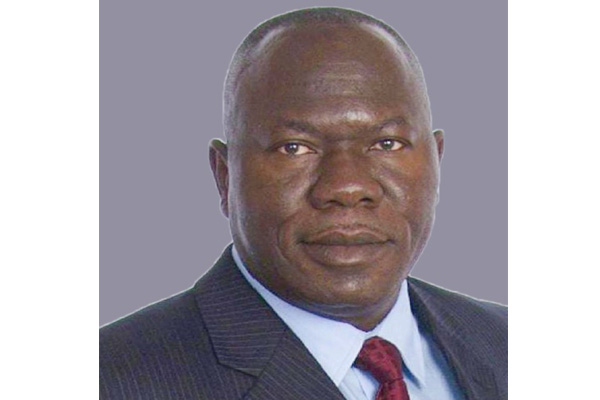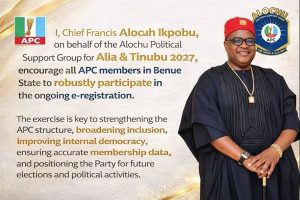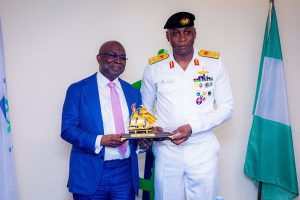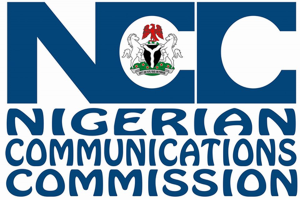U.S – based Aerospace expert, Dr. Ibrahim Salau
Dr. Ibrahim Salau, a mechanical and aerospace engineer needs little or no introduction in the global aviation circles. The U.S-based aviation expert is a Nigerian citizen who is well regarded and sought after by top aviation companies of the world. He is a specialist in the design and manufacture of the best helicopters and airplanes.
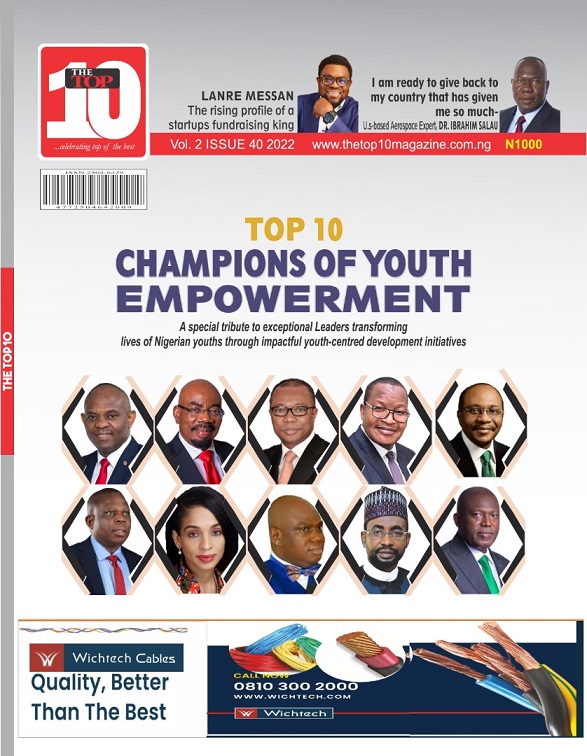
He has worked for such aviation and related industries as B/E Aerospace in Jacksonville, Florida; Delta Airlines in Atlanta Georgia; Sikorski Aircraft in Connecticut, Atlas Air in New York and now Bombardier Aerospace in Montreal Canada. He has worked on Boeing 727, B737, B757, B767, B777, Blackhawk and Seahawk helicopters as well as the Bombardier all new CSeries aircraft.
It would interest fellow Nigerians that, to be given such opportunities in the US, you must have a background of sound moral character and unblemished employment records. It should also be a pride to Nigerians to know that Nigerian hands were involved in the innovation and engineering marvels like the Blackhawk. Dr. Salau was also involved in the design and manufacture of the Seahawk helicopter, the helicopter that is used for medical evacuations in times of war and disaster. Other helicopters in whose design he took part include the CH53K heavy lift helicopter. Dr. Salau is not only involved in the Design and Manufacturing support of some of these equipment, but also in testing of the end product to ensure adequate structural integrity.
Currently Dr. Salau works in Canada for Bombardier and has just completed work on building the Bombardier C-Series 100/300 aircraft in which he has been involved from the design and analysis to the mechanical engineering perspective.
Dr. Salau was born in Eika-Ohizenyi in Okehi Local Government Area of Kogi State. He attended Igbira Local Government Authority School after which he proceeded to Federal Government College, Ilorin, where he was exposed to Nigerians from other states. There was excellent blending among members of all ethnic groups and religions and he never felt a need to belong to any region.
He attended University of Lagos, worked for Ajaokuta Steel Industries and with the Nigeria National Petroleum Corporation LNG Project before proceeding to France where he obtained a Doctor of Science in Mechanical Engineering from the University of Nancy. He then moved to the US to work as a Research Assistant Professor in the then Mechanical and Aerospace Engineering Department of University of West Virginia in Morgantown WV, after which he joined the aviation industry.
Dr. Salau had the experience of running a non-for-profit, multi-religious Nigerian organization in USA as their National President from 2013 to 2017. Called the Zumunta Association USA (www.Zumunta.Com), the organization afforded Dr. Salau the opportunity of working with Chairman/CEO NiDCOM, Hon. (Dr) Abike Dabiri-Erewa. The Zumunta Association uses the strength of Northern diversity in the Diaspora to improve living conditions in Northern Nigeria. He is very passionate about Nigeria’s growth and development.
Dr. Salau’s membership of the National Democratic Party in USA, also gave him the rare privilege to introduce President Obama too during Oct. 2010 Mid-term campaign In Connecticut, USA. He was also privileged to be introduced by Simon Russell, the music mogul, at the political rally.
In this interview with the Top10 magazine, Dr. Salau speaks on the development and growth of the aviation sectors in U.S, Europe and Nigeria; what Nigeria needs to do to fast-track the development of its aviation industry; the Nigerian Diaspora Commission; his vision for Nigeria, security situation in Nigeria, his take on the 2023 elections and the presidential candidates, amongst others.

Q: Having spent all your aerospace career years in US and Canada, how familiar are you with the Nigerian Aerospace industry?
A: I must confess to you, not as much as I would have loved to know. However, I am in constant communication with those in the sector and doing my research to get abreast of what is going on.
First and foremost, I would like to see the good era of Nigerian Airways, our defunct Flag carrier, back in the sky flying local and international routes.
Let us go down memory lane a bit. Initially operating under the name of West African Airways Corporation Nigeria (WAAC Nigeria) formed in 1958, Nigeria Airways came into being in 1971 before it ceased operation in 2003. Fast forward from that, we now have quite a number of airlines operating in Nigeria such as Aero Contractors, Air France, Air Peace, Arik Air, Alitalia, Allied Air, Associated Aviation, Azman Air, Bellview Airlines, British Airways, Chanchangi Airlines, China Airlines, Dana Airlines, Delta Airlines, Diamond Flights, Emirate Airways, Egypt Air, Ethiopian Airlines, Ferry Aviation, First Nation Airways, IRA Airlines, KLM, Lufthansa Airlines, Max Air, MedView Airlines, Qatar Airways, United Airlines, Virgin Atlantic, West Link Airlines, etc.
In terms of the regulatory bodies, we have the Federal Ministry of Aviation that regulates air travel and aviation services in Nigeria. FAM is responsible for formulation and management of the government’s aviation policies. The ministry is also in charge of overseeing air transportation, airport development, maintenance, provision of aviation infrastructural services and other needs. Then we have the Nigerian Aviation Management Authority, NAMA, whose mission is to provide safe, efficient, effective, and economic air navigation services to users through deployment of new technology and dedicated workforce. Another is an autonomous body, the Nigerian Civil Aviation Authority (NCAA), empowered to regulate Aviation Safety and to carry out oversight functions of Airports, Airspace, Meteorological Services, as well as economic regulations of the industry. In summary, the principal stakeholders concerned with safety and security in the Nigerian aviation sector include the NCAA, NAMA, FAAN and the Nigerian Air Force (NAF).
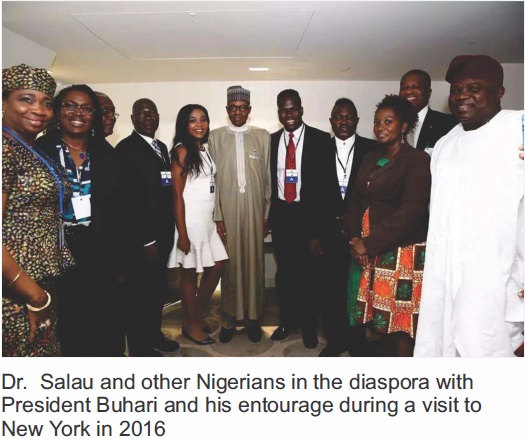
I wish I knew more about how these agencies work collaboratively, how they formulate policies, share data in order to make Nigeria one of the top ten in the World in this industry. I would like to seize this opportunity to challenge the giant international airlines operating in Nigeria (KLM, United, Delta, British Airways, …) to see that the market is there in Nigeria to have a giant aircraft maintenance center in Nigeria. Ultimately, the hard work of getting this done lies on the willness of the Nigerian government.
Q: Could you, please, compare the Aerospace industry in Nigeria with those of US and Europe and point out the factors that are responsible for the differences identified?
A: This question touches on a very broad issue of comparing what operate in advanced countries vis-a-vis Nigeria in the aerospace sector. The short answer is that all of these countries have the capability to conceive, design and manufacture aircrafts and by extension have strong aircraft maintenance centers. As far as I know, countries such as South Africa, Kenya, Ethiopia, and Morocco have aircraft maintenance centers where you can accomplish the highest level of maintenance checks. I would like to see Nigeria rise to that level first of all, and be the giant of Africa in aircraft maintenance. The government, working with private entrepreneurs can come up with an aggressive five- or ten-year plan of having a made-in-Nigeria civil aircraft. The determination and focus have to be there because we have the natural and human resources to get it done.
Q: What do you think Nigeria can do to narrow the gap between the level of development of the aerospace industry in Nigeria and in US/Europe?
A: In addition to the above comments on this topic, I would like to see the various agencies charged with the responsibilities as stated earlier to be transparent to the tax payers and clearly state how (a) they are fairing (doing good or not and by how much) in each defined mission of the ministry or agency (b) the morale of staff working for them is (are they well trained and adequately compensated?). They should ensure that Nigeria does not continue to be a dumping ground for aging aircraft that has been retired by the parent country of use because they are no longer profitable to them. Nigeria does not manufacture aircraft as far as I know, how do we become one of the leading countries in graveyard of unused aircraft?
Q: Could you, please, give us an insight into the highlights of your personal professional contributions to the industry or the organizations you served, that have earned your personal recognition?
A: My contribution to the aerospace industry is quite modest, I must admit. My career in the industry spans a period of 27 years and counting.
Upon obtaining my PhD in Mechanical Engineering from France, my first job was teaching at West Virginia University (WVU), Morgantown, West Virginia, USA in the department of Mechanical and Aerospace Engineering Department as a Research Assistant Professor. While at WVU, I supervised graduate students industrial training working with late Professor Suren Dwivedi (may his soul rest in peace). Let me add that I was employed by WVU then as a Researcher with Extra-Ordinary Ability. I even introduced a new course then in area of concurrent engineering (or simultaneous engineering) which was the main domain my PhD research was based on. Theses subject is “Distributed Design Methodology, Theory and Application.”
I then proceeded to start working in the industry starting with B/E Aerospace in Jacksonville, Florida, USA as a Designer and a Structural Analysist of aircraft interior systems. This include but not limited to the design and analysis of aircraft gallies, closets; chillers/galleys systems refrigeration testing, noise control testing and flammability testing.
After about three years of working for B/E Aerospace, I joined Delta Airlines working at their Technical Operations Center, Atlanta Georgia, USA. Here, I started working as a Maintenance Review Board (MRB) Engineer writing fuselage repair instructions to return aircraft to a serviceable condition. In a plain man’s language – writing repair instructions for aircraft that would have been on-ground because of damage back to the air. I was at Delta, we had well over 600 aircraft in our fleet – both wide body and narrow body aircraft. My journey at Delta also exposed me to working on some aircraft engines (Pratt and Whitney 4000, JT8D, …), Auxiliary Power Unit (APU) and Thrust Reversers.
At this point in my career, I switched from being a direct hire to consultancy jobs in aviation. I started working for Sikorsky Aircraft beginning with Maintenance Review Board and Structural Analysis mainly of Blackhawk and Seahawk helicopters. I eventually worked on the Design and Analysis of US Presidential Helicopter called the VH92A. Another aircraft I worked on is Sikorsky Heavy Lift Helicopter – the CH53K.
After about four years with Sikorsky, I joined Bombardier Aerospace in Montreal, Canada, to work on the design of their brand-new aircraft called CSeries 100 and CSeries 300. While at Bombardier, I also had the opportunity to do damage tolerance analysis work on Challenger and Learjets as well as MRB on Global 7000 executive jets.
Seeing a great opportunity to work on space structures, I joined L3Harris Technologies in Melbourne, Florida, USA for over four years as a Senior Specialist, Mechanical Engineer.
Q: Could you please comment on the idea behind the setting up of the Nigerian Diaspora Commission and the role it is playing or not playing in tapping the pool of Nigerian professionals abroad?
A: My opinion is that the establishment of Nigerian Diaspora Commission, NiDCOM is a very good and noble idea. I applaud the idea of having this agency under the ministry of Foreign Affairs to among others facilitate the engagement of Nigerians in Diaspora in the policies, projects and participation in the development of Nigeria and utilize the human capital and material resources of Nigerians in Diaspora towards the overall socio-economic, cultural and political development of Nigeria.
This agency is headed by a dedicated and determined woman, Honorable Abike Dabiri-Erewa whom I have had the privilege of working with at various levels in other to achieve the above objective and others. Indeed, I am inspired by her love of Nigeria and her dogged determination and strength to see us harness the resources we have both in Nigeria and abroad to see Nigeria move forward.
The general belief in Nigeria is that most Nigerian professionals abroad are reluctant to return home to invest their expertise in the country. Do you agree with this position? If so, why are they reluctant? If not, why are they not coming?
Before I address this question, let’s think a little bit outside the box first. One could ask, why do Nigerian trained professionals leave the country for greener pasture elsewhere to begin with? Everyone has the desire to live in a place that guarantee security for them and their family. I believe they then make a determination to have adequate source of living and happiness. A place where freedom of speech is guaranteed, is a plus in this equation. Unfortunately, we seem to be lagging behind a bit in allowing freedom of speech to fester at home. We ask potential job seekers what their state of origin is, for no reason. Shouldn’t a Nigerian be a Nigerian irrespective of where they live in Nigeria? We need to keep working toward the true ideal of One Nigeria. Our differences in language, culture, religion or no religion is and should be our strength, not our weakness.
Now to answer your question, I will say NO, I do not believe that at all that Nigerians professionals abroad are reluctant to return home to invest their expertise in the country. What I see is that there are prevailing factors that are not helpful in accelerating that return back home. First, when they go out, they are looking to gain that advanced experience in their various fields of endeavor. Second, they have spouses and children that go to schools, and they want to be part of their lives and watch them grow and succeed in their education. However, without taking a swipe at anyone, it is not encouraging to hear a Nigerian leader is abroad for a medical treatment when such a treatment can be made possible by investing in the same top notch medical centers in Nigeria and be treated by same Nigerians that are treating them abroad. It is also not encouraging when our leaders are sending their children abroad for education while neglecting our educational system at home. A prime example is the sad issue of Nigeria Academic Staff Union of Universities being on strike now for months with no resolution in site. Many believe if our leaders’ children are doing their education in Nigeria, the neglect of ASUU would not be happening. The same thing goes to so many other establishments. You can talk about the insecurity across the country happening right now. We as leaders need to rethink our actions that have reverberating adverse effects on our citizens.
Look at other world leaders, they do not engage in that kind of behavior because they consider that not just a national risk to the country they lead, but their strong commitment to national pride would not let them.
My observation is that Nigerian professionals are determined to return home at some point, and I am very happy to see our government create an agency such as NiDCOM that is putting some mechanisms in place to facilitate that move. Side by side, Nigerian professionals abroad and those at home can work together to turn the tide of things for good. I strongly believe that.
Q: What is your personal disposition towards the need for diaspora professionals to come back home to build their own country?
A: I am all for diaspora professionals who feel they have achieved enough experience they desire, and have had his/her family situation taken care of to return home for nation building. No other person is going to do it for us but us. The advanced countries didn’t become advanced overnight. If they can do it, we can. On a personal level, am I at a point where I would like to come home and contribute my little quota to that nation building? The answer is YES. It is time for me to give back to the country that has given me so much.
Q: What role(s) do you see yourself playing in the near future as your professional contribution to the growth and development of your country, the aerospace industry in particular?
A: I stand ready to participate either through the private sector, government agency, academia or through political arena. All options are open.
Q: Apart from aerospace, you also have some expertise related with security management, what role do you think people like you can play to help Nigeria to overcome the current volatile security situation in the country?
A: We all know that no nation is hundred percent security-proof. But what we need to solve our seemingly intractable security challenges are well within our reach. Anything that has to do with security management know-how is not something you throw out there in the open. So, I reserve any further comments on this subject.
Q: Many foreign-based Nigerian professionals return home to join politics to improve on the quality of political leadership of the country. Are you thinking along that line?
A: As stated earlier, there are many ways in which I can contribute to nation building, and yes, including through politics. My options are wide open.
Q: If you are offered an opportunity today to come and serve your country, would you accept?
A: Yes. I will seriously consider any opportunity that comes along.
Q: What is your take on the security situation in the country, with particular reference to foreign investments or return of foreign-based professionals?
A: No further comment on this topic beyond my response to one of the questions above.
Q: What are your thoughts concerning Nigeria’s general elections scheduled for 2023?
A: Let me state from the onset that I am not a registered member of any Nigerian political party. I have watched very closely the three leading Presidential Candidates. Without going into details, the only candidate that inspire me, not just in terms of his message of where our country should be headed but also on his demonstrated accomplishment while he had his chance in power at a state level is Peter Obi.
Having said that, I urge our elders and youths to vote your conscience. Vote for that candidate you believe is truly up to the task in terms of moral character, has the strength and vigour the duty of that office demands. What we shouldn’t do is voting based on sentiment, on sectionalism – he is my tribesman, on religion and all the other hot button differences that exist between us that our politicians have been using for years to create that wedge between us. It is time to think anew. What has not served us well in the past is certainly not going to serve us this time if we keep making that mistake.
It should be pointed out that we cannot elect the leader of our choice if the system is rigged in favor of one candidate over another. On this note, I call on the Independent National Electoral Commission, INEC, to make it easy and ensure all Nigerians of voting age willing to cast their vote have their PVC. I am happy to hear our President, Muhammadu Buhari, pledge to leave a legacy of free, fair and credible election for Nigeria. That starts with making sure those who are eligible to vote get their PVCs with ease. There are so many ways of doing it rather than asking people to come enmass to a stadium or some public arena where INEC officials cannot effortlessly discharge their duties.
To ensure a free, fair and credible election, certain things have to be in place in my opinion:
First, those eligible to vote have easy access to that PVC,
Second, no loss of lives, destruction of property, harassment either of INEC poll workers, volunteers or the electorate coming to vote, and, third, votes are correctly counted.
Do you know Nigerians in Diaspora still have no right to vote despite the fact that Diaspora Remittances in 2019 alone amounted to US$25 Billion? That is also 6% of our Gross Domestic Product (GDP). There are so many African countries that allow their citizen to have that voice in their elections. This issue has been pushed by NiDCOM and others, but the powers that be are always quick to quash that idea instead of investigating and asking Kenya how they did it.
I call on Nigerian citizens to have fun doing the election process and not to engage in any form of violence in the name of supporting your candidate. Act of violence is not what election is about. It is not worth it. May the best candidate win. For me, that candidate is Mr. Peter Obi

